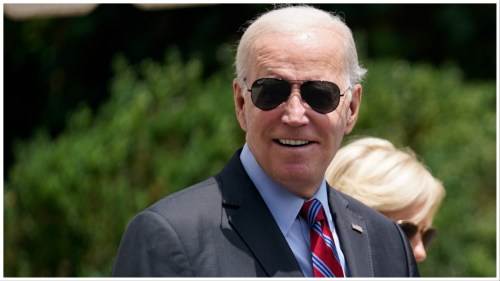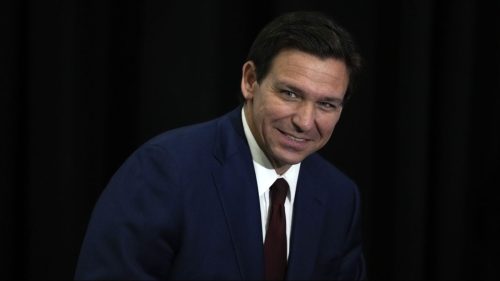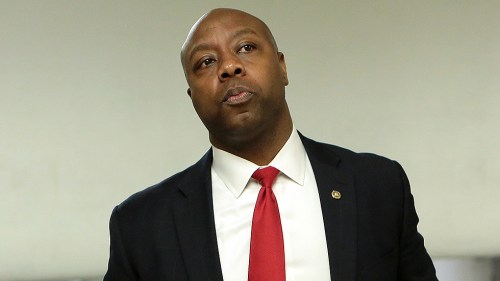Political earthquakes rock New Jersey’s Democratic machine
A series of political earthquakes has shaken New Jersey’s Democratic machine to its core over the past year as a new generation of leaders looks to bring change to the Garden State.
It’s a moment that’s been building for years.
Since October, prosecutors have indicted two of the state’s most powerful Democrats: South Jersey political boss George Norcross and Sen. Bob Menendez (D-N.J.). The state’s Democratic establishment pick, first lady Tammy Murphy (D), crashed out of the Senate race. And a federal judge threw out a ballot design, colloquially called “the line,” that upheld the power of the state’s political machine.
“2024 has been the year of the most significant change in politics in New Jersey in the last 50 years,” Jersey City Mayor Steven Fulop (D) told The Hill. “There has been a massive weakening in who controls the system, and there is pressure on the state’s machines.”
The changes are rooted at least in part in a generation of younger Democrats who have sought to challenge the party’s old guard. This is perhaps embodied best by Rep. Andy Kim (D-N.J), the underdog candidate who won his party’s nomination for Senate earlier this year. Now, that new generation is looking to flex its muscle beyond 2024.
“In New Jersey, there was a machine that was really powerful and if you went up against it, you lost. Through Norcross losing power, the county line lawsuit and Menendez’s indictment … all these events have created this window, and people are stepping into it,” Rutgers political science professor Julia Sass Rubin said.
The day after the U.S. attorney for New Jersey announced an indictment against Menendez for bribery, including accepting gold bars, Kim, who won a Trump congressional district during the 2018 “blue wave,” said he would run to replace him.
According to Fairleigh Dickinson University pollster and professor Dan Cassino, having a Democrat with widespread name recognition announce a primary challenge against Menendez in the state was “unheard of.” Menendez had faced a corruption trial during former President Trump’s White House term, but it ended in a mistrial, with Democrats largely standing by him.
“I really just hit a breaking point,” Kim told The Hill. “I just wasn’t sure that anybody else would. I saw what happened last time around when Sen. Menendez was indicted, and the party protected him or rallied around him. I didn’t want to see the same thing happen again.”
“I got in knowing that this would probably end my political career,” Kim added.
It didn’t.
Top Stories from The Hill
- Top fundraiser George Clooney abandons Biden: ‘The dam has broken’
- Ocasio-Cortez files impeachment articles against Supreme Court Justices Thomas, Alito
- Axelrod: Pelosi’s comments on Biden’s future ‘very significant’
- Giuliani hearing devolves into chaos as judge signals bankruptcy dismissal
Kim is now the Democratic nominee in the 2024 race, and the Democratic party has cut off Menendez.
New Jersey is the only state in the nation that does not use an office ballot, where all candidates for one race are listed in a particular order. Rather, each county’s Democratic or Republican party decides — either through a convention or by the leaders of the county party — on a line of candidates down the ballot. Generally, large counties see the chairs decide the candidates, while smaller counties have open conventions.
“The county line ballot, the line, draws the eyes and cognitively makes it really easy to pick candidates who are on the line, and makes it harder to pick candidates who are off the line,” said Sam Wang, a neuroscience professor at Princeton University who has written about the power of the line.
Conducting a statistical test, Wang found a party endorsement gave a candidate a 17-point advantage. With the line, a person had a 38-point advantage.
“The political machine in New Jersey was a lot of bravado and based on perception, because they’ve done a really good job avoiding primaries,” Fulop said on the power of the line in the state.
Murphy, the first lady, quickly racked up the county chairs’ endorsements in some of the state’s most populous counties, and those chairs decide who gets the line. According to Henal Patel, director of the New Jersey Institute for Social Justice, the appearance of Murphy rigging the race in her favor quickly “drew outrage,” and Kim filed a lawsuit to end the line.
“I never liked it,” Kim told The Hill. “This seemed like a place where I could get to the heart of so much of the problem. It’s not only about the county line — in terms of the problems we have with politics in New Jersey and the rise of corruption and cronyism — but it’s a big part of it. Here was a situation where I felt like I was able to hopefully take it down and dismantle it.”
According to Cassino, an increasingly insurgent movement of New Jerseyans disillusioned with the state Democratic Party’s politics has gained a strong enough foothold there to fight back against the state’s Democratic establishment.
“The party was able to protect Menendez and make sure no Democrat ran against him [in 2018],” Cassino said. “They don’t have the power to do that anymore, and the fact that the party couldn’t persuade Andy Kim not to run is a strong sign that the party was losing its juice.”
While Kim threw his name in the race against Menendez, he was building on the work of activists organizing across the state for more than a decade to change the state’s politics.
According to Hector Oseguera, a 2020 primary challenger against former Rep. Albio Sires (D-N.J.), Trump’s election in 2016 galvanized many in the state to become more interested in politics and activism.
“The traditional story I get from people is that they started paying more attention after Trump, or they moved to New Jersey from somewhere else,” he said. “For a lot of them, they encounter [a] local issue they want to deal with, and they look for the person locally that would handle these things. Then, they come to find out that what they were taught in civics class about the way that government works, that’s actually not how it works in New Jersey.”
“In fact, the way things work is that there’s some kind of power broker, a political boss somewhere. That’s the person who determines how things happen through government in the state of New Jersey, and they become very disgusted by that, and decides to begin organizing locally,” he adds.
Cassino said that progressive power has also grown in the state. Coupled with the state’s increasing diversity — New Jersey is the fourth most diverse state in the country — the power of the machine was waning.
The recent indictment of Norcross, a man who has never held elected office in the state but was “treated like a demigod” who was “invincible,” according to Rubin, further underscores the changes occurring in the Garden State.
“What we’ve seen is that New Jerseyans have not given up on democracy,” said Sue Altman, executive director of the New Jersey Working Families Alliance and Democratic nominee for New Jersey’s 7th Congressional District. “After years of organizing, we laid the groundwork to bring down the last remnants of Tammany-style politics in the state.”
“This is where the rubber meets the road,” said Stephanie Schmid, a former Democratic nominee for New Jersey’s 4th Congressional District. “This is where we see if this was a fluke or if this was part of a massive moment to take on corruption, whether this fades going into 2025 and 2026, or whether this is the start of a sea change.”
According to Matt Krayton, a Democratic political strategist in the state, “the jury is still out on the full impact of these changes.”
“I don’t think we’re going to have a full picture until the governor’s race [in 2025], where we’re going to have a crowded field with a number of well-resourced candidates who have the money to run real campaigns potentially without the line,” he said.
“That will be the first true test of this new system.”
Copyright 2023 Nexstar Media Inc. All rights reserved. This material may not be published, broadcast, rewritten, or redistributed. Regular the hill posts












